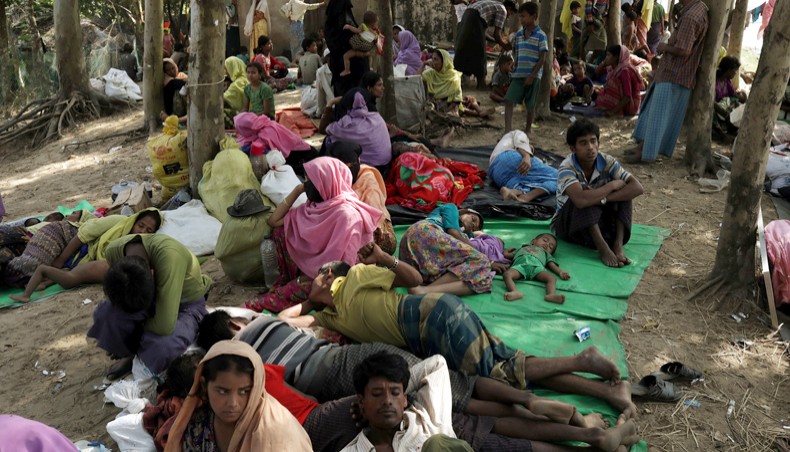EXPERTS, POLITICIANS ON ROHINGYA REPATRIATION AGREEMENT Deal creates uncertainty
The hurried signing of a Rohingya repatriation deal with Myanmar without timeframe and leaving Nay Pyi Daw to decide who could return might make the process uncertain, experts and politicians said on Sunday.
‘The government has committed a big mistake, I should say “crime”, by signing the deal without protecting national interests,’ Communist Party of Bangladesh presidium member Haider Akbar Khan Rano told New Age on Sunday.
The government signed the instrument complying with the requests of the Myanmar authorities, he said, adding that it was unlikely that anyone would agree to voluntarily return.
The instrument, Arrangement on Return of Displaced Persons from Rakhine State, was signed by Myanmar and Bangladesh on November 23 to repatriate Rohingyas entered Bangladesh from Rakhine State only after October 9, 2016.
Socialist Party of Bangladesh general secretary Khalequzzaman observed that the government hurriedly signed the deal with Myanmar without considering certain major aspects of repatriation, including willingness of Rohingyas to return, to show that it was active to resolve the crisis.
There are loopholes in the provisions of verification of the nationality of the Rohingyas with conferring much authority to Myanmar by agreeing to accept provisions stated in the 1992 joint statement and that might make repatriation uncertain, he said.
It was possible to bring documents of citizenship in 1992, but this time it was impossible for them, he said.
Steps on ensuring citizenship of Rohingyas, compensation for damages made to
them, reconstruction of their houses and trial of people involved in ethnic cleansing were kept unresolved, he added.
Chair of the parliamentary standing committee on foreign ministry Dipu Moni declined to comment on the deal signed with Myanmar. ‘The foreign minister has talked about it,’ she said.
Bangladesh Enterprise Institute vice-president Humayun Kabir said that the government started an uncertain journey without setting any destination by hurriedly signing the instrument with Myanmar when Bangladesh was in an advantageous position on the matter. ‘Where the government would hide its face if the process of repatriation gets stuck in uncertainty,’ he said.
Kabir, also former ambassador, said that the only point that might put Myanmar in trouble was that the country indirectly admitted, by agreeing to accept ‘children born out of unwarranted incidents’, that there were incidents of rape in Rakhine State.
The members of split families, their left behind members, orphans and children born out of unwarranted incidents are to be certified by a Bangladesh court and both parents of additional offspring born in Bangladesh must be residents of Myanmar, according to the deal.
Army general turned ambassador M Shahidul Haque said that the Myanmar Army, which enjoys huge control and influence on foreign, home and border management issues, was possibly not
involved in the process of negotiation of the ‘arrangement’. Myanmar Army might create uncertainty in the repatriation process, he added.
A serving Bangladesh ambassador to a European country said that it was not necessary for Bangladesh to sign the agreement ‘without any timeframe’ when the international communities were mounting pressure on Myanmar.
News Courtesy: www.newagebd.net











